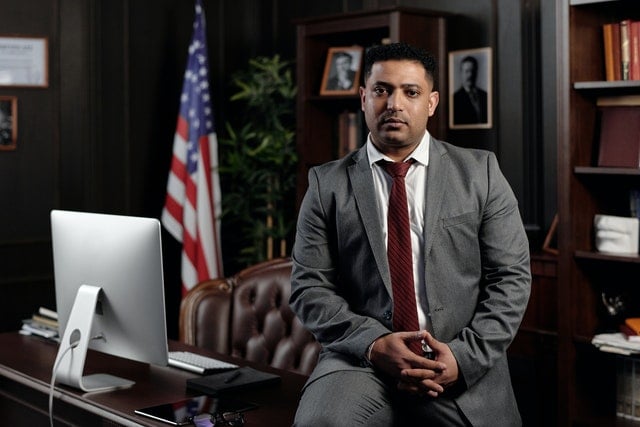2 min read
So, You Want to Do Insurance Defense Work?
If you are still reading this blog post after reading the title, then you have either done work for or are interested in doing work for an insurance...
We've crafted solutions tailored to your firm
The world of insurance for law firms can be confusing, and difficult to navigate. We've created this glossary because these common insurance terms should be easy to understand.
4 min read
 John Ries, Claims Attorney
:
Updated on December 20, 2024 | Posted on October 31, 2024
John Ries, Claims Attorney
:
Updated on December 20, 2024 | Posted on October 31, 2024

One of the scariest trends we have seen at ALPS is the increasing prevalence of insurance carriers suing defense counsel hired to defend the carriers’ insureds.
Every attorney reading this is likely familiar with the tri-partite relationship between a liability insurance carrier, its insured, and a defense counsel hired by the carrier. While this concept likely first appeared soon after companies in the United States began offering liability insurance in the late 19th century, in recent years many articles have been written on the subject because, as it relates to lawyers, defense counsel face the dilemma of identifying who their clients are.
Most liability insurance policies contain a provision that the carrier has the right and duty to defend covered claims against its insured and will appoint legal counsel to defend the claim. Defense counsel is then chosen from a list of attorneys the carrier has established business relationships with and the defense is paid by the carrier, typically subject to a deductible, and defense counsel agrees to comply with the carrier's billing guidelines and reporting requirements.
In a broad sense, the carrier, defense counsel, and insured all have the same goal: to successfully defend the claim against the insured. Yet while generally aligned, that does not mean that they have the same goals; insurance carriers need to remain profitable, the insured wants to avoid personal liability, and defense counsel seek to develop lucrative relationships with carriers. Not surprisingly, defense counsel will occasionally find themselves in the situation described in Aesop’s fable: The Man, The Boy, and the Donkey as they defend a claim.
Yet even with these divergent objectives, the vast majority of claims handled by defense counsel go smoothly and everyone is satisfied with the results. The legal malpractice cases we are seeing at ALPS, however, typically involve the situation where a verdict exceeds an insured’s policy limit and the carrier blames defense counsel for not adequately advising the carrier of the risk. Less common are situations where defense counsel make a mistake resulting in a carrier having to pay more than it would have otherwise had to. In either scenario, when these claims arise, the first question is: does defense counsel owe a duty to the carrier?
At first glance, it would seem obvious that defense counsel are being hired to defend the carrier’s insured and, therefore, the only client is the insured and no duty is owed to the carrier. Yet in agreeing to represent a carrier’s insured, defense counsel agree to certain conditions including to provide regular evaluations to the carrier and to defend the insured under the applicable standard of care. This raises the potential of defense counsel owing a duty to both the insured and the carrier even though their interests do not necessarily align.
While few reported opinions have discussed this issue, the Washington Supreme Court addressed it in Stewart Title Guar. Co. v. Sterling Sav. Bank, Corp., 178 Wash.2d 561, 311 P.3d 1 (Wash. 2013) and concluded that the contractual duty to inform the carrier was insufficient to support a duty to the nonclient carrier. The court went on to hold that the contract between the carrier and defense counsel does not avoid the duty created by RPC 5.4(c) which mirrors the ABA Model Rule 5.4(c): “A lawyer shall not permit a person who recommends, employs, or pays the lawyer to render legal services for another to direct or regulate the lawyer's professional judgment in rendering such legal services.”
Yet while answered in Washington, most states have not specifically addressed the issue so we have seen an increasing number of carriers suing defense counsel. It may be that at some point in the future every state will follow the Washington Supreme Court’s lead, but in the meantime, what can defense counsel do to avoid being sued by a carrier?
First, when defense counsel agree to represent an insured they could send a letter to the carrier specifically stating that they are only representing the insured, not the carrier, and that while he or she will provide the carrier with evaluations and updates, it is the carrier's responsibility to evaluate the case independently of what information defense counsel provides. It would also be advisable to reference Rule 5.4(c), or your state’s equivalent, and confirm that while defense counsel is agreeing to abide by the carrier’s billing and reporting guidelines, counsel still has the duty to use his or her professional judgment in rendering legal services in representing the insured.
Second, and probably more important, defense counsel needs to provide updates to the carrier – not only every six months, or whatever interval the carrier uses, but for every development in the case. Not just copies of court filings, discovery, and demands, but also deposition summaries and transcripts and defense counsel’s impressions on how the case is progressing. Basically, defense counsel should assume that the carrier wants to be advised of everything and let the adjuster request that defense counsel scale back.
Finally, with regard to advising the carrier on a potential jury verdict or settlement value: don’t. Defense counsel should only be giving the carrier a breakdown of the claimed damages and an analysis of how valid they are. If the carrier requests, defense counsel can provide jury verdict and reported settlement research but with the caveat that there is no way to predict either. Specific to potential settlement value, defense counsel should not be giving the carrier a prediction on how much a case will settle for. Defense counsel’s job is to give the carrier as much information as possible on the claimed damages and the carrier’s job is to use that information to set reserves and settlement authority.
In conclusion, defense counsel must remember that the carrier’s only client is the insured they are defending and they owe the client the duty to use their professional skill and judgment in defending the client. Defense counsel have a contractual obligation to the carrier that hired them, but counsel cannot let that interfere with their duty to the client. The moral of The Man, The Boy, and the Donkey? Please all, and you will please none. In the world of insurance defense litigation, there is no way to make everyone happy and attorneys who attempt to do so are often the ones who end up being sued for malpractice.
John Ries is a graduate of the University of Montana School of Law and Northwestern School of Law at Lewis & Clark College. John has been a Claims Attorney for ALPS since 2009. Prior to coming to ALPS, John served as a Deputy District Attorney for Union County, Oregon, and an Associate Attorney at Stamper Rubens, PS, in Spokane, Washington.

2 min read
If you are still reading this blog post after reading the title, then you have either done work for or are interested in doing work for an insurance...

2 min read
More than a few lawyers who exclusively practice in the mediation or criminal defense space believe that purchasing malpractice insurance is a waste...

2 min read
It seems that every week, the news reports on yet another company that suffered a cyber breach. Law firms, even small firms, are not immune from...